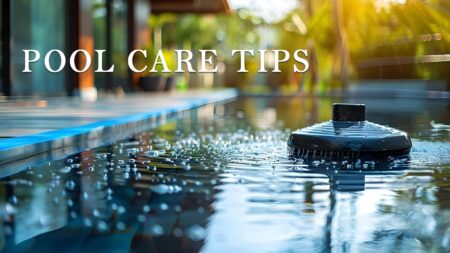Do you hear a buzzing noise from your air-conditioner? Is your AC taking longer than usual to kick in after adjusting the temperature? If yes, you should perform regular maintenance to ensure its unhindered performance. Conducting regular maintenance will not only help rectify the identified issues but will also allow you to know whether the air-conditioning performance is subpar or if it has developed some technical snag over time.
A well-maintained AC keeps the indoor temperature — and humidity — within the desired levels while improving the air quality inside your home. Thanks to DIYers (and YouTube), maintaining an AC unit is no longer rocket science. While some tasks should be left to pro technicians, most of them can be DIYed without worrying about electric shocks or refrigerant leaks. Here are some practical AC maintenance tips to keep your AC unit functioning at its best:
A Quick AC Maintenance Checklist
- ✅ Schedule an annual service
- ✅ Clean or change air filter
- ✅ Clean coils
- ✅ Check ducts
- ✅ Clean vents
- ✅ Avoid blocking the airflow
- ✅ Don’t switch off the system
- ✅ Examine thermostat
- ✅ Keep outside unit away from debris
- ✅ Monitor energy bills
Schedule Regular Maintenance
Every homeowner should prioritize regular servicing of air conditioner. Failure to do so may result in the system’s inefficiency. A trained AC technician is better positioned to examine the system, diagnose issues, and offer a practical solution. Fortunately, you don’t have to worry about finding a reputable technician since many HVAC companies provide service contracts comprising maintenance checks.
As a typical homeowner without experience examining or repairing an AC, you might fail to note when the system is malfunctioning. However, a professional technician can detect an issue before dismantling the system. Among the things the technician will do during the maintenance include:
- Examine if the thermostat is functioning well
- Lubricate moving parts
- Clean and replace filters if necessary
- Find the reason behind your AC producing rattling or thumping sounds
- Check the refrigerant level
The technician will also inspect the coils and condenser to determine if they’re clogged or dirty.
Replace or Clean AC Filters
AC filters capture dust, dirt, and pollen, preventing them from contaminating indoor air. Over time, these filters get dirty and cease to function properly. When this happens, cleaning or replacing the filter is vital to continue enjoying uncontaminated indoor air.
According to experts, you should replace the AC filters after every three months or so. You can also clean the filters before the replacement period elapses. Easily cleaning your AC filter improves the unit’s workability while preventing pollutants from entering your home.
Clean the Coil
According to Energy Star, the evaporator and condenser coils are vital for producing warm and cool air. Dirt and grime cover these coils as time passes, interfering with their functionality. Dirty coils cause the system to overwork, resulting in inefficiency and high energy bills. To prevent this, regularly clean the coils to keep them grime and dirt-free.
Check the Ducts
The ducts are the points that release the cold air in different rooms and thus it is crucial to keep them clog-free and intact. In such conditions, the AC will require more energy which will cost you more money. You should check each duct for leaks or other problems.
Clear the Vents
If vents of your air conditioner are clogged up with dust, pet dander, and other particles, it really hampers your AC system’s efficiency and can lower indoor air quality. Clearing the vents will increase cool air circulation in your home and minimize allergens that may be harmful to your health.
Also Read: Different Types of Vacuum Cleaners for Varying Needs
Avoid Blocking the AC’s Airflow
Leaving enough space around the AC is vital for proper airflow. You should therefore avoid placing items such as furniture, plants, or rugs in front of the unit. Placing objects close to the AC restricts airflow, causing system overwork. As a result, the system increases energy bills and becomes inefficient. Restricting enough airflow from accessing the system can cause the unit to overheat.
Avoid Switching Off the System
Many homeowners think switching off the AC is an excellent way of saving energy. Unfortunately, turning off the system can destroy it. Switching the AC on and off strains the components, making them weaker and more susceptible to breakage. It’s, therefore, vital to ensure the system runs consistently, lest you’re ready for costly repairs.
Examine the Thermostat
Examining the thermostat of your air-conditioner is among the easiest maintenance tasks every homeowner should know. A well-functioning thermostat ensures room temperature always remains within a comfortable range.
Suppose your AC has an outdated thermostat. In that case, you should replace it with a programmable one. A smart thermostat enables you to set your preferred temperature. For example, if you want your home temperature to be low when you’re away from home, you can achieve that easily by setting the thermostat.

Besides ensuring your home is always at the preferred temperature, a programmable thermostat reduces energy bills since the conditioner doesn’t run when you aren’t at home.
Keep Debris Away From the Outside Unit
Don’t let grass clippings, leaves, vines, and dirt accumulate around your outside unit. These all are potential blockages that should be kept at least 2 feet away from the outdoor unit. This simple task can help keep your AC functioning at its best all season long.
Monitor Energy Bills
Suppose you notice increased energy bills without altering your AC’s usage. Your unit must be malfunctioning. You should therefore schedule maintenance as soon as possible. In this case, the filters might be dirty, or other parts may be failing. Leaky ducts or low refrigerant can cause the AC to overwork and consume more energy.
Bottom line
Maintaining the unit is effortless and cheap if you can do the abovementioned checks in a routine. Otherwise, consider occasionally hiring an AC unit technician to check if the air conditioner is in good health, especially if you can’t do it yourself.
FAQs
Air conditioner sucks indoor air and then passes it through a refrigerant coil to absorb heat and then releases the cool air inside and heat outside the room.
There are mainly four types of air conditioners, including window, central, ductless mini-split and portable systems.
Air filter is an important part of air conditioner as it catches dust and other particles before releasing the cool air into the living space. It is recommended to clean or replace the filters every 1 to 3 months.
The BTU (British Thermal Unit) rating of an air conditioner refers to its capacity to remove heat from the air.
It is a general rule that an air conditioner needs 20 BTU to cool each square foot of living space.
Proper insulation, programmable thermostats, clean filters, and regular maintenance are some of the common methods to ensure optimal performance.
Follow Homecrux on Google News!




